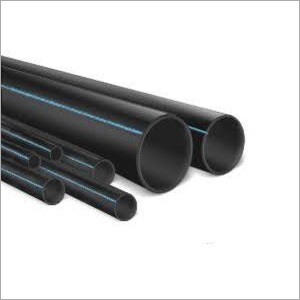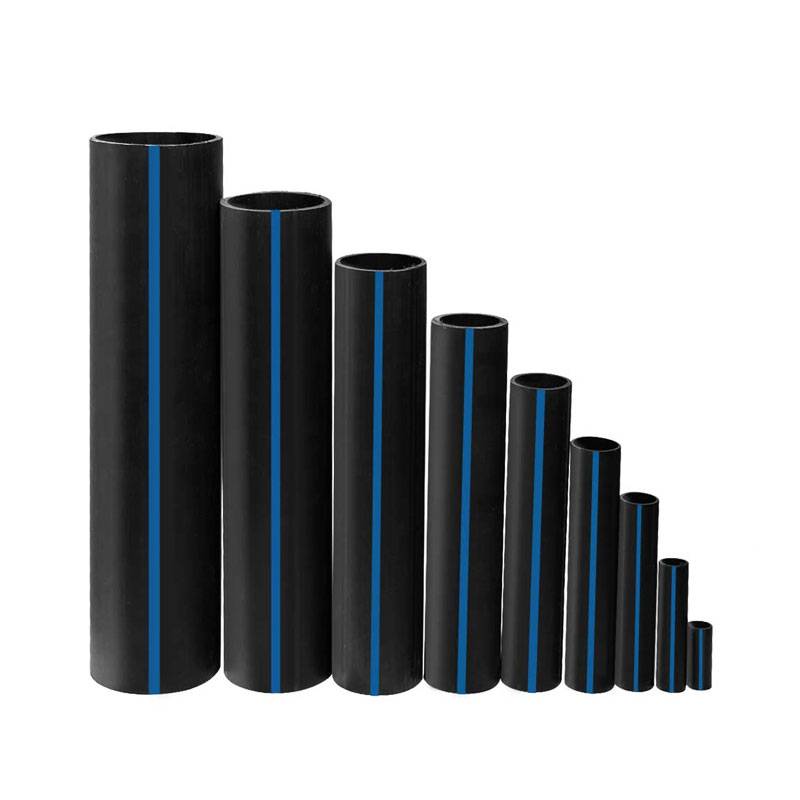How American Plastics HDPE Pipe for Oilfield Supports Oilfield Operations
Wiki Article
Understanding the Key Advantages of HDPE Pipe for Water and Wastewater Management
The usage of HDPE pipeline in water and wastewater administration offers countless benefits that warrant factor to consider. Its extraordinary toughness and lengthy life expectancy make it a recommended selection for numerous jobs. Furthermore, the product's resistance to corrosion and chemical damages enhances its dependability in different environments. The benefits prolong past just longevity and resistance. hdpe pipe fittings Midland TX. Exploring its cost-effectiveness and environmental influence exposes even extra engaging factors for its widespread fostering in modern-day facilitiesExtraordinary Sturdiness and Long Life

HDPE pipeline attracts attention for its extraordinary durability and long life, making it a preferred choice in water administration systems. Created from high-density polyethylene, these pipes can withstand considerable stress and stress, ensuring reliable performance gradually. Their durable nature allows them to endure extreme ecological problems, consisting of temperature fluctuations and dirt motions, which can cause other materials to stop working.
The life-span of HDPE pipelines commonly exceeds half a century, offering a cost-efficient option for municipalities and industries alike. Furthermore, the material's light-weight residential or commercial properties simplify setup, decreasing labor costs and durations. This durability minimizes the requirement for constant repairs or substitutes, further boosting its financial charm.
In water management applications, the integrity of HDPE pipes implies fewer disruptions and boosted service continuity, making them important to sustainable facilities development. The combination of sturdiness and durability strengthens HDPE's function as a foundation in efficient water administration services.

Resistance to Deterioration and Chemical Damage
While several products catch rust and chemical damages in time, HDPE pipelines display remarkable resistance, making them excellent for various water administration applications. This strength originates from the molecular structure of high-density polyethylene, which is inherently non-reactive and does not rust like steels or break down from exposure to harsh chemicals. As a result, HDPE is extremely reliable in environments with hostile compounds, such as wastewater systems that may include acids, bases, and natural solvents.
In addition, HDPE pipelines can endure environmental factors such as soil level of acidity and saline conditions, even more improving their viability for varied applications (Midland TX HDPE Pipe Fittings in Stock). Their capacity to maintain architectural honesty in time decreases the risk of leakages and failings, which is essential in making certain the security and reliability of water circulation and wastewater management systems. The resistance to rust and chemical damage noticeably adds to the general effectiveness and durability of HDPE piping services.
Cost-Effectiveness and Economic Advantages
When considering the financial ramifications of water management systems, the cost-effectiveness of HDPE pipelines becomes obvious. These pipes offer reduced installation and maintenance prices contrasted to conventional products like steel or concrete. Their lightweight nature simplifies transportation and installment, leading to lowered labor expenditures. Additionally, HDPE pipes display a long lifespan, frequently going beyond half a century, which translates to less replacements and long-lasting cost savings.In addition, the resistance of HDPE to corrosion and chemical damage lessens the requirement for expensive repairs and substitutes. The pipelines likewise support reliable water flow, lowering power expenses connected with pumping systems. By mitigating leaks and water loss, HDPE pipelines contribute to considerable economic benefits for towns and markets alike. In general, the first investment in HDPE piping can generate significant economic returns over the life-span of the water management system, making it a sensible option for sustainable infrastructure growth.
Environmental Sustainability and Decreased Influence

Convenience and Flexibility in Setup
Since of their distinct buildings, HDPE pipes provide exceptional versatility and flexibility in installation, making them appropriate for a variety of look what i found applications. Their light-weight nature allows for easier handling and transportation, decreasing labor costs and installment time. HDPE pipelines can be curved and shaped to fit various surfaces and task demands, which is especially helpful in testing atmospheres.In addition, their resistance to corrosion and chemical damage enables for setup in diverse settings without the demand for specialized protective layers. The capacity to fuse joints creates a continual, leak-free system, enhancing the total stability and integrity of the installation. HDPE's versatility also fits ground activity, minimizing the threat of damages in locations prone to changing soil. Overall, these qualities make HDPE pipelines not only flexible but also a recommended choice for water and wastewater management systems.
Regularly Asked Questions
How Does HDPE Pipe Compare to PVC in Water Monitoring Applications?
HDPE pipeline anchor offers exceptional flexibility, resistance to rust, and sturdiness compared to PVC. Its lighter weight helps with less complicated setup, while its lengthy lifespan decreases replacement costs, making HDPE a recommended option in water administration applications.What Is the Life Expectancy of HDPE Water Lines Under Common Problems?
Under normal problems, HDPE pipes can have a life expectancy varying from 50 to 100 years. Their toughness and resistance to deterioration add to their long-lasting performance in numerous applications, making them a dependable selection for framework.Are HDPE Pipes Recyclable After Their Life Span?
Yes, HDPE pipelines are recyclable after their solution life. Texas hdpe pipe manufacturer. They can be natural gas line plumber refined and repurposed into brand-new products, greatly lowering environmental influence and promoting sustainability within the industry, making them an environment-friendly option for piping remediesWhat Is the Installment Process for HDPE Pipes?
The installment process for HDPE pipes entails site preparation, trenching, pipeline combination or mechanical joining, backfilling, and pressure screening. Appropriate methods guarantee a resilient and effective system for delivering water and wastewater successfully.Can HDPE Piping Be Made Use Of for Both Drinkable and Non-Potable Water Solutions?
Yes, HDPE pipes can be made use of for both potable and non-potable water systems. Their convenience, sturdiness, and resistance to rust make them ideal for numerous applications, ensuring risk-free and effective transportation of water in various contexts.Report this wiki page